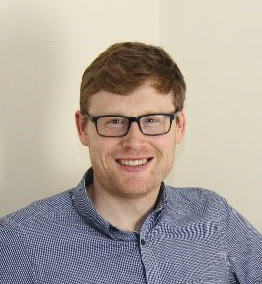
- This event has passed.
PBPK Workshop 2023

This 2.5-day workshop is co-organized by the directors of the Master 2 in Pharmacokinetics (Lyon, Marseille, Paris and Toulouse), PhinC Development and the GMP.
Workshop overview and objectives
This workshop is designed to provide participants with the necessary information needed for Physiologically Based Pharmacokinetic (PBPK) modeling. New Chemical and Biological Entities will be considered when applicable.
The workshop has been structured into two parts:
- 1 day: four keynote lectures (90 to 120 minutes each) on the main applications of PBPK (including case studies)
- 1.5 day: hands-on exercises.
Wednesday Dec, 6th 2023
13:30 – 13:35
GMP representative
Welcome
13:35 – 15:05
Donato Teutonico (Sanofi)
Prediction of human pharmacokinetics from preclinical data:
• Cross species extrapolation in PBPK
• Use of in vitro data to predict Pharmacokinetics
• Use of in vitro data to predict Pharmacodynamics
15:05 – 15:30
Coffee break
15:30 – 17:30
Letizia Carrara (Servier)
Biopharmaceutic and Drug-Drug Interaction
• Formulation and solubility
• Food effect prediction (including examples)
• Drug-Drug Interaction (including examples)
Thursday Dec, 7th 2023
9:00 – 10: 30
Oliver Hatley (Certara UK, Simcyp Division)
Special populations – Hepatic and renal impairment PBPK modeling
• Physiological changes in Hepatic and Renal impairment
• Impact of severity of disease on changes in pharmacokinetics
• Regulatory guidance and current status of organ impairment PBPK models in clinical trial waivers
10:30 – 11:00
Coffee break
11:00 – 12:30
Ashwani Sharma (Insight Biosolutions)
QSAR modeling of parameters for Human PBPK
- QSAR predictions about key physicochemical properties and risk assessment of compounds
- QSAR modeling for plasma protein binding prediction
QSAR modeling for P-Glycoprotein Binding prediction
12:30 – 14:00
Lunch
14:00 – 18:00*
Laurence Del Frari (Pierre Fabre), Virginie Gualano (PhinC) & Jeremy Perrier (PhinC)
Building a PBPK model
• Case study of hydrocodone (CYP3A4 and CYP2D6 substrate)
• Modeling of parent drug and metabolite
19:00 – 20:30
Cocktail
Friday Dec, 8th 2023
8:30 – 12:30*
Laurence Del Frari (Pierre Fabre), Virginie Gualano (PhinC) & Jeremy Perrier (PhinC)
Groupe 1 (15 delegates):
DDI applications
• Case study with paroxetine, a strong inhibitor of CYP2D6
Groupe 2 (15 delegates):
Biopharmaceutic applications
• Modeling extended release (ER) tablets using in vitro data
• Prediction of exposure with different ER tablets
12:30 – 13:30
Lunch
13:30 – 17:00*
Laurence Del Frari (Pierre Fabre), Virginie Gualano (PhinC) & Jeremy Perrier (PhinC)
Groupe 1 (15 delegates):
Biopharmaceutic applications
• Modeling extended release (ER) tablets using in vitro data
• Prediction of exposure with different ER tablets
Groupe 2 (15 delegates):
DDI applications
• Case study with paroxetine, a strong inhibitor of CYP2D6
* Including a coffee break
Speakers Biographies

Donato Teutonico has received his PharmD from the University of Turin, Italy, where he specialized in chemical and pharmaceutical technology, and his PhD in pharmaceutical sciences from Paris-South University, France. He has 14 years of experience in modeling and simulation of drug effects and clinical trials in industrial and academic settings. Donato has authored 2 books, 2 book chapters and contributed to more than 13 publications in international journals. He is currently PBPK Scientific Expert at Sanofi.
 Letizia Carrara is a Senior Pharmacometrician in the Clinical Pharmacometrics group at Servier, in Paris. She is an Engineer and in 2018 she received a PhD in Bioengineering and Bioinformatics at the University of Pavia (Italy). During the PhD she worked on several projects, both in preclinical and clinical settings, in oncology and infectious diseases, and she spent 6 months as a visiting scientist at the University College of London (UCL). She has 4-year experience as a pharmacometrician, and her main areas of expertise are Physiologically-Based Pharmacokinetic (PBPK) modelling for first time in human (FTIH) predictions, drug-drug interaction (DDI) simulations, IVIVC, dosing in special populations, absorption modelling and food effect predictions in oncology and CNS diseases
Letizia Carrara is a Senior Pharmacometrician in the Clinical Pharmacometrics group at Servier, in Paris. She is an Engineer and in 2018 she received a PhD in Bioengineering and Bioinformatics at the University of Pavia (Italy). During the PhD she worked on several projects, both in preclinical and clinical settings, in oncology and infectious diseases, and she spent 6 months as a visiting scientist at the University College of London (UCL). She has 4-year experience as a pharmacometrician, and her main areas of expertise are Physiologically-Based Pharmacokinetic (PBPK) modelling for first time in human (FTIH) predictions, drug-drug interaction (DDI) simulations, IVIVC, dosing in special populations, absorption modelling and food effect predictions in oncology and CNS diseases

Oliver Hatley is a Principal Scientist who has been working at Certara UK Limited’s Simcyp Division since 2013. He received his MSc in Drug Discovery Skills at the Kings College London in 2009. He went on to study in vitro to in vivo (IVIVE) extrapolation of Intestinal Metabolism with the University of Manchester (CAPKR) and AstraZeneca, focusing on IVIVE scaling factors, receiving his PhD in 2014. Oliver is part of the translational sciences in DMPK group within the Simcyp Division. He has lead development of the esterase organ and blood IVIVE scaling strategies and the development of special adult populations within the Simcyp Population-based Simulator.
 Ashwani Sharma Dr. Ashwani Sharma is a distinguished figure in the realms of computational chemistry and biological modeling, with an illustrious career spanning over 15 years. Currently at the helm as the Founder of the French company, Insight Biosolutions in Rennes, France, Dr. Sharma embodies a dynamic fusion of visionary leadership and scientific expertise. Armed with a Ph.D. in Industrial Biology and Bioinformatics, Dr. Sharma has devoted his professional journey to unraveling intricate challenges within the biotech industry. His remarkable tenure includes collaborative ventures with prominent European enterprises, where he harnessed the power of molecular modeling and machine learning techniques to conduct safety assessments of pharmaceutical and cosmetic products. Beyond his corporate roles, Dr. Ashwani Sharma is a trailblazing influencer within scientific circles. He served as a distinguished member of the board of the esteemed French society “Group of Metabolism and Pharmacokinetics” (GMP), he has championed the advancement of in-vitro and in-silico models for safety evaluations of pharmaceutical and cosmetic innovations. Furthermore, his dedication extends to the European Society for Alternatives to Animal Testing (EUSAAT), where he offers unwavering support to foster the utilization of innovative approaches for product safety assessment.
Ashwani Sharma Dr. Ashwani Sharma is a distinguished figure in the realms of computational chemistry and biological modeling, with an illustrious career spanning over 15 years. Currently at the helm as the Founder of the French company, Insight Biosolutions in Rennes, France, Dr. Sharma embodies a dynamic fusion of visionary leadership and scientific expertise. Armed with a Ph.D. in Industrial Biology and Bioinformatics, Dr. Sharma has devoted his professional journey to unraveling intricate challenges within the biotech industry. His remarkable tenure includes collaborative ventures with prominent European enterprises, where he harnessed the power of molecular modeling and machine learning techniques to conduct safety assessments of pharmaceutical and cosmetic products. Beyond his corporate roles, Dr. Ashwani Sharma is a trailblazing influencer within scientific circles. He served as a distinguished member of the board of the esteemed French society “Group of Metabolism and Pharmacokinetics” (GMP), he has championed the advancement of in-vitro and in-silico models for safety evaluations of pharmaceutical and cosmetic innovations. Furthermore, his dedication extends to the European Society for Alternatives to Animal Testing (EUSAAT), where he offers unwavering support to foster the utilization of innovative approaches for product safety assessment.
Facilitators Biographies

Laurence Del Frari has over 25 years of experience in modelling & simulation in Pharmacokinetics and Pharmacodynamics applied to pharmaceutical research and development across various disease areas, including small and large molecules. She has worked in several pharmaceutical companies. Currently, she is expert in PKPD modelling & simulation at Pierre Fabre Laboratories, where she is contributing to the early and late development and registration of new oncology and dermatology drugs. In this role she is responsible for modelling & simulation strategy in drug development, including population approach, Physiologically based pharmacokinetic modelling as well as well as Quantitative System Pharmacology and contributions to trial protocols, analysis plans, study reports and regulatory submissions. With a Pharmacy diploma from Paris University and a specialization in pharmacokinetics & metabolism and in statistical modeling and simulation, her focus is to promote and apply innovative methods to optimize data knowledge, trial efficiency and support investment decisions in drug development.
 Virginie Gualano is co-founder of PhinC Development. She is a Pharmacokinetic, PBPK expert, and Consultant in Pharmacometrics. She has developed the PBPK practices within the company since 2012 and she manages the PBPK unit. With more than 25 years of experience, she held many positions in pharmaceutical industry as a PK project leader, Head of the Pharmacokinetic unit and Pharmacometrician. She is a Doctor in Pharmacy and she holds two university degrees in Pharmacokinetic and in Biostatistics.
Virginie Gualano is co-founder of PhinC Development. She is a Pharmacokinetic, PBPK expert, and Consultant in Pharmacometrics. She has developed the PBPK practices within the company since 2012 and she manages the PBPK unit. With more than 25 years of experience, she held many positions in pharmaceutical industry as a PK project leader, Head of the Pharmacokinetic unit and Pharmacometrician. She is a Doctor in Pharmacy and she holds two university degrees in Pharmacokinetic and in Biostatistics.

Jérémy Perrier is a pharmacometrician specialized in PBPK at PhinC Development. He completed his PhD in 2018 at the University of Strathclyde (Glasgow, Scotland) where he worked on various projects involving the development of advanced in vitro and in silico tools for the characterization of oral drug solubility. Then he joined PhinC Development where he developed a broad PBPK experience by working on several projects such as DDI predictions, first in man predictions, formulation studies and also new applications such as modeling of intra-articular administration. Jérémy holds a Pharmacy degree from the University of Aix-Marseille (2012), and a master’s degree in pharmacokinetics from the University of Paris Descartes (2013).